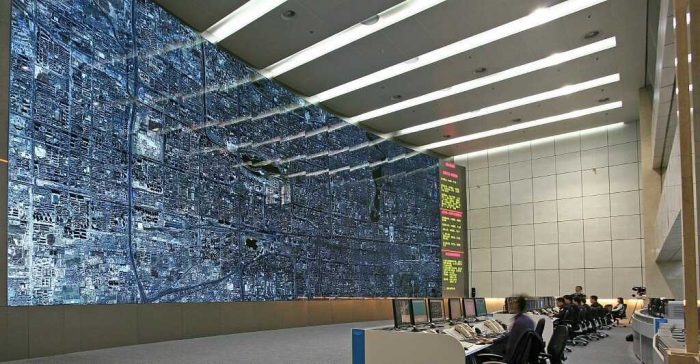All welcome to our 5th Cryptoparty!
https://www.khm.de/termine/news.4425.cryptoparty-di-24-04-2018-19-bis-21-uhr/
workshop contents: https://t1p.de/crypto
All welcome to our 5th Cryptoparty!
https://www.khm.de/termine/news.4425.cryptoparty-di-24-04-2018-19-bis-21-uhr/
workshop contents: https://t1p.de/crypto
30 minute slots, presenting work-in-progress in small hotel rooms
Guest critic: Reut Shemesh
TUESDAY 5th December 2017 from 16.30 to 20.30 h
WEDNESDAY 6th December 2017 from 09.45 to 12.00 h
@ Motel One, Köln-Waidmarkt, Tel-Aviv-Strasse 6
room numbers will be posted to Megaphon as soon as we have checked in on Tuesday
— everyone welcome to practise with us — just turn up on time to join the review —
poster by Nikolai
A gallery of great posters from great Hilfskrafts past and present:
https://www.khm.de/~sievers/sag_posters/index.html
the 2nd Medienkatastrophe-lecture of the summer term
Simon Denny: Tech and Distributed Governance?
lecture in English
From the rise of blockchain (the distributed ledger behind Bitcoin) to the development of management methodology ‘Holacracy’ at Zappos in Las Vegas and the intelligence agencies of the UK, the lecture will map some of the technology industry’s disruptive forces as they alter the conditions of governance.
From dreams of alternatives to hyper-liberalism, and more recently affinities with the far right, the discussion and presentation will touch on various interconnected case studies and unpack the changes being rolled out between the state and extra-state forces extending the tech community’s infrastructure, culture and influence today. As the Silicon Valley community builds and maintains what has become the interfaces for global communications, the tensions between politically nationalist governing systems and global financial and information streams continue to intensify.
Drawing on his work over the last 5 years Denny will unpack moments in this trajectory.
https://www.khm.de/termine/news.4185.simon-denny-tech-and-distributed-governance/

A State of the Platform Address
By Geert Lovink
20 April 2017, 18h, KHM Aula
This lecture deals with the changes over the years from media, via networks to platforms. What does it mean that the internet has become infrastructure, penetrating society, from taxis to hotels to agriculture and healthcare, going well beyond the media and communication realm? What do we mean when we talk about ‘platform capitalism’? What is aggregation and does it play out in different contexts? We all know how social media operate in daily life, but what’s the next step, and how can the art world, start to play a role in these massive changes in society?Geert Lovink is a media theorist, internet critic and author of Uncanny Networks (2002), Dark Fiber (2002), My First Recession (2003), Zero Comments (2007), Networks Without a Cause (2012) and Social Media Abyss (2016). Since 2004 he is researcher in the Faculty of Digital Media and Creative Industries at the Amsterdam University of Applied Sciences (HvA) where he is the founder of the Institute of Network Cultures. His centre recently organized conferences, publications and research networks such as Video Vortex (the politics and aesthetics of online video), Unlike Us (alternatives in social media), Critical Point of View (Wikipedia), Society of the Query (the culture of search), MoneyLab (internet-based revenue models in the arts) and a project on the future of art criticism.
Network Cultures Critique! Buzzwords: Era of Social Media Monopolies / Platform Capitalism / Cryptocurrencies / the end of the “free” services business model / etc etc. He’s meeting us at 16h to look at some of your projects. There are a million talks on Youtube. From a short interview about Social Media:
“I sincerely hope that we can still break it open and have space for more experimentation. Because what we see is the reverse development. And that’s got to do with the fact that people are more and more familiarizing themselves. It’s all slipping into this new level of mass subconsciousness, where the social media become part of the everyday life. We all know that, when you walk into the elevator, very very likely he or she is going to get out the smartphone and check it before they arrive at the 6th floor. That is a new habit. And it’s this habitual element which is very very dangerous. Because it forbids further experimentation, and kind of solidifies the network architectures and says, this is what it is. If we know what it is, it can then enter the collective subconsciousness. And that is a very dangerous moment. And that is the moment of complete and utter state and corporate control.”
Update: here’s the recording

The room with the really large screen is reserved for monitoring online dissent.
The Surveillant Architectures blog has now moved from blog.khm.de to http://sag.khm.de. Nothing lost!
For those who have the time, inclination, language proficiency (and attention span) to listen to a podcast in German: The history of systematic surveillance.
The thesis is that it was started in the mid-1600s when three conditions came together: For the first time, enough people knew how to read and write and there was actually something to systematically surveil: a great international culture of letter writing that had sprung up in recent decades. The starting point was the beheading of King Charles I of England in 1649. A huge shock to those in power. Suddenly all the other powerful European nations saw the need to better control their populace. The first to implement this was France which decreed that from now on all letters had to go through Paris, so they could be intercepted, opened and copied. With our recent experience of post 9/11 surveillance extensions it’s not hard to image what the pretext for this was. More security? Efficiency?
https://technische-aufklaerung.de/ta042-zur-geschichte-der-systematischen-ueberwachung/
In this context see also our mammoth timeline.